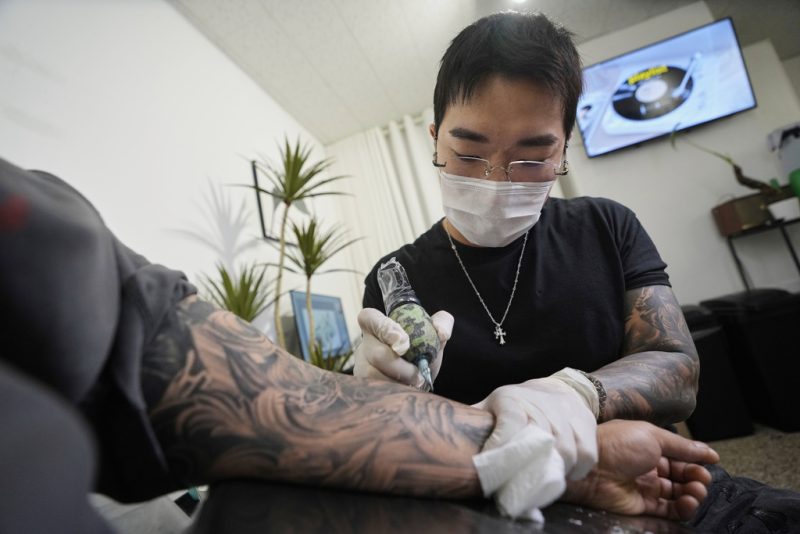UPDATE: A rising number of tattoo recipients are reporting symptoms of the so-called “tattoo flu” in the wake of their ink sessions. This phenomenon, characterized by fever, chills, and body aches, has sparked urgent discussions among experts and tattoo artists about its implications for those undergoing tattoo procedures.
The “tattoo flu” is not a viral infection but rather an immune response to the trauma of getting inked, according to experts. Dr. Mary Lupo, a board-certified dermatologist, explains, “This absolutely happens. It’s very dependent on the individual and their sensitivity.” Larger tattoos or extended sessions are linked to heightened chances of experiencing this malaise.
Timothy Lebron of the HERE tattoo parlour in Brooklyn, NY, confirms the trend, noting, “Plenty of people get hit with that foggy, feverish feeling after a tattoo.” Symptoms can include nausea, exhaustion, and a sensation likened to a bad hangover. One Reddit user described feeling “hot and exhausted,” while another felt “like I got hit by a truck.”
The urgency surrounding this issue is compounded by anecdotal evidence from tattoo professionals. Jeff Garnett, co-founder of InkLess Tattoo Removal in New York City, recounted his own experience with tattoo flu after enduring two lengthy sessions in 2020. He cautions that while some symptoms are genuine reactions to the tattooing process, others might indicate common illnesses, exacerbated by the body’s efforts to heal.
Garnett pointed out, “Your body can only handle so much.” In his practice, he limits the duration of tattoo removal sessions to prevent overwhelming clients’ immune systems.
As tattoo popularity surges, the phenomenon of tattoo flu is becoming increasingly common. Experts suggest staying hydrated, consuming electrolytes, and resting post-session to mitigate symptoms. Dr. Lupo recommends anti-inflammatory medications to help manage discomfort. “Most of the time, people sort of treat it symptomatically and deal with it,” she added.
In light of these developments, tattoo enthusiasts are advised to approach their sessions with caution. “If it hits you, don’t panic,” Lebron reassures. “Rest. Drink water. Eat something with salt and carbs. Take a warm shower. You’ll usually feel fine by the next day.”
Despite the discomfort associated with tattoo flu, many individuals report no adverse effects, with some users on social media expressing surprise upon learning about the phenomenon. One TikTok user remarked, “I didn’t even know tattoo flu was a thing lmao and I’m covered in them.”
As more individuals seek to express themselves through body art, understanding the implications of the tattoo flu will be crucial for both artists and clients. Stay informed and prepared ahead of your next tattoo session.





